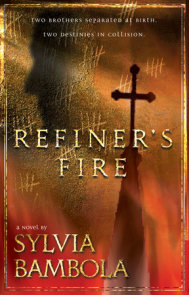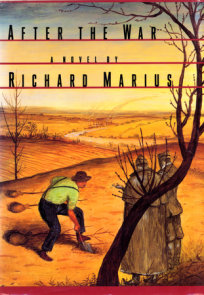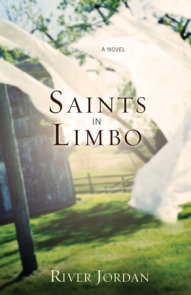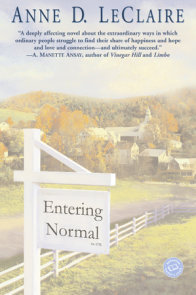READERS GUIDE
Questions and Topics for Discussion
INTRODUCTION
On Christmas Eve in 1967, a London woman unhappily transplanted to the Australian suburbs makes a decision that will change forever the lives of her four young children.
Forty years on, those children are adept at concealing their shared pain. Deborah has a demanding political career; James is a successful artist, Robert a respected school principal. Only Meredith, the baby of the family, seems stuck. But as their father begins to lose his grip on reality, they find themselves floundering in an unfamiliar sea. And their past is about to reach into the present in ways that will shock and challenge them all…
A spellbinding contemporary novel, Without a Backward Glance draws us deep into the intensely private world of family life and brilliantly illuminates the joys, sorrows, and sustaining comfort that we find there.
ABOUT KATE VEITCH
Kate Veitch was born in Adelaide in the mid-1950s and left home and school early, eager for color and movement. Her work over the years includes writing articles and reviews for the Sydney Morning Herald andVogue, collaborating with other mothers on Feeling Our Way, a book about becoming parents, and producing a series on women writers, Their Brilliant Careers, for Radio National. She lives part-time in Manhattan and part-time in Melbourne, while she and her partner build a home for themselves in northern New South Wales. Without a Backward Glance is her first novel. To read more about Kate, go to www.kateveitch.com.
A CONVERSATION WITH KATE VEITCH
Q. How much of this novel is based on your own life?
There are certain similarities between the family in Without a Backward Glance and my own: four siblings, a father entering dementia—but I can honestly say that none of those characters bears much resemblance to me or my siblings, nor is the father my own father. I haven’t had an immigrant forebear since 1852, and my mother never ran away. Each character in the book is an amalgam of different people I have actually known (including myself), plus a big serve of imagination. It sounds like a writer’s cliché, but I really do find the most fun part of writing fiction is how the characters develop in ways I never expected.
Q. How did you come up with the main concept, a mother leaving her children and husband behind? What inspired you?
My own mother was an intelligent woman, trained as a journalist, who found herself trapped in the dull suburbs of postwar Melbourne with four children, just like Rosemarie, unable to find satisfying work due to the restrictive social mores of the times. She didn’t leave, but I’m sure she sometimes wished she could! Her frustration and unhappiness, which eventually became chronic depression, gave us kids the feeling of her absence though not the reality. So, when I came to writing this novel, I wondered what it would be like to have a mother who had physically disappeared.
Q. The reader spends most of the book in the heads of Rosemarie’s children and their lives. Why did you choose to give just a glimpse of what Rosemarie’s life had been like since she left?I wanted the reader to meet and see the older Rose more or less as her children did—not having been part of her life in those missing decades. I actually wrote several sections in which we are with Rose in her life in London after she goes back there. But it seemed to interrupt the narrative flow, so those sections have just been condensed into a few sentences—Rose’s conversation and thoughts at the time James and Silver spend Christmas with her. Like most writers, I suppose, I know a lot more about my characters than one can possibly put down on the page—otherwise the book would go on forever!
Q. What was the process of writing Without a Backward Glance like?
I wrote all my notes on character, plot, etc. in longhand in very ordinary, lined exercise books. (I find I can’t use the beautiful bound blank books or journals that caring friends give me; they feel too permanent and scary!) But I don’t write much in the way of notes, though, really—just enough to get things straight in my head, then I start the actual story, always directly on my laptop. I love writing on a computer because I can change whatever I want without any hassle, and this saves me from the paralyzing anxiety of “It has to be perfect!”
With Without a Backward Glance, I broke the novel into big sections, then the sections into chapters, then the chapters into bite-size segments, each one from 500 to 1,500 words, i.e., a day’s work. This made the whole immense undertaking seem manageable. (My favorite saying, not surprisingly, is “The journey of a thousand miles begins with a single step.”) I also didn’t watch any TV or read any newspapers, had a miniscule social life, and, most important, I didn’t allow myself to read any other books at all until I’d finished my segment for the day. This is a technique I think of as “boring myself into submission.”
I’m very lucky in that I don’t have to work at a day job, nor do I have young children or elderly parents to care for. When I wrote the first draft of Without a Backward Glance, I was in the perfect situation: in a rented house in the hills of central Bali, one of the most beautiful and creative places on earth. The house wasn’t grand, but it was comfortable and spacious and in a lovely location, and I had staff who looked after me and the house so graciously, all for the same price that ordinary life would cost in Australia. Not surprisingly, the writing just flowed, like pouring water from a jug. I wish I could say that the same thing was happening with my second novel! But my life has become more complicated, though for very happy reasons, and the writing has come more slowly. I hope to have it finished soon!
DISCUSSION QUESTIONS




















